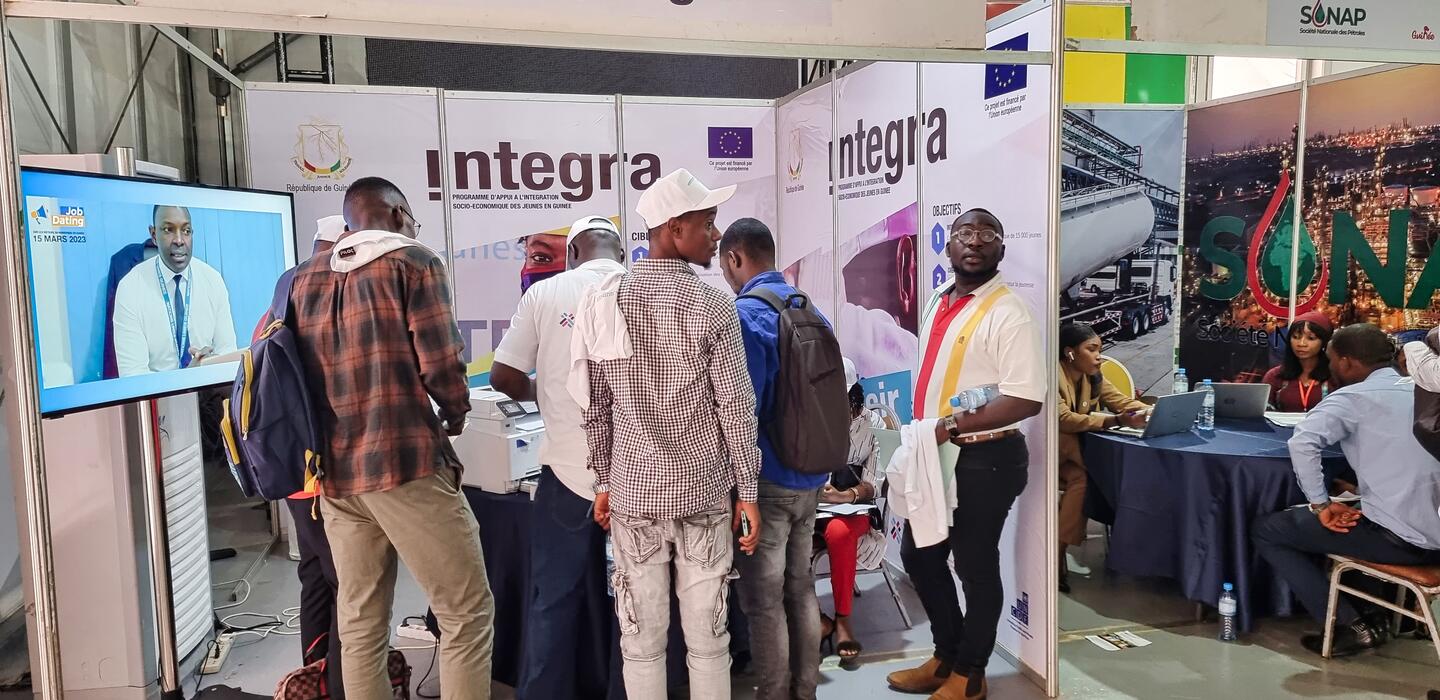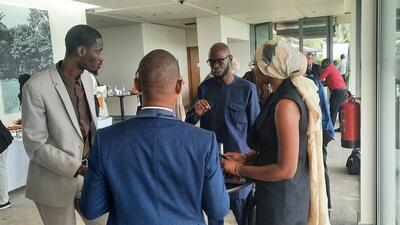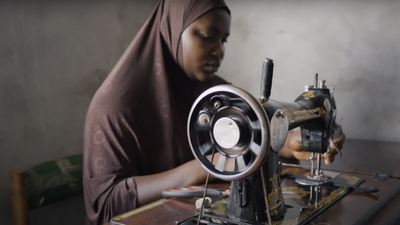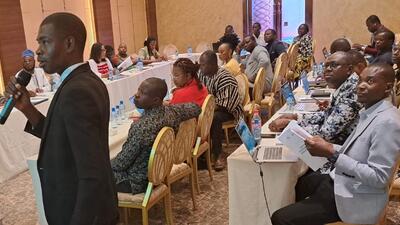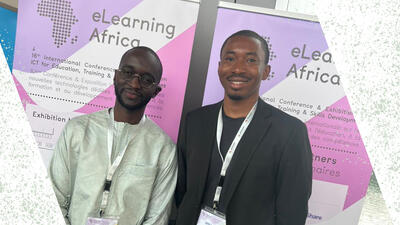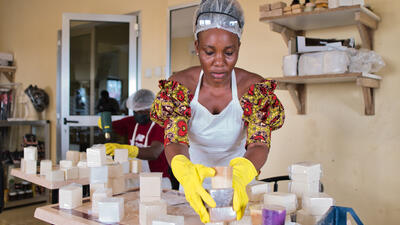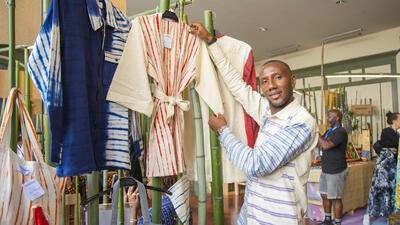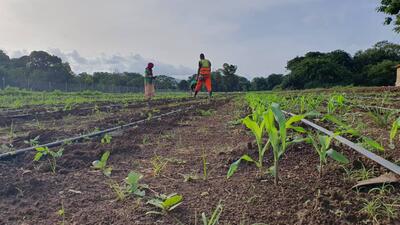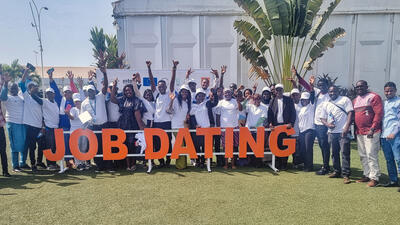
Guinea’s first job dating links trainees to potential employers
Over the last four years, more than 2,000 youth in Guinea received training to help them land jobs, through the INTEGRA programme at the International Trade Centre. To make the leap from training to employment, the programme hosted the country’s first-ever Job Dating event for 300 candidates to meet businesses looking for talent.
The Job Dating event focused on careers in information technology, particularly in small and medium-sized enterprises (SMEs). Modelled on a speed dating concept, each person met for 10 minutes with a prospective employer, before moving on to introduce themselves to the next one.
“I showed up for the Job Dating at 8am, and since then, I’ve met 14 companies,” said Ali Camara, one of the participants.
The youth who took part had already gone through extensive training with the SME Trade Academy, learning things like mobile app development, digital marketing, phone repair and even office software.
By learning through virtual workshops, the trainees worked with top instructors, including one who conducted the sessions remotely from Rwanda.
“The ‘sourcing’ was really high-quality,” said a human resources manager from Orabank. “By 4pm, we’d had about 60 interviews, with candidates that had varied and interesting profiles.”
Finding work close to home
The long-term goal is to encourage young Guineans to pursue work opportunities in their country rather than making the often-dangerous trek to Europe.
"The INTEGRA project aims to keep youth in Guinea, and thereby contribute to its economic dynamism,” said Raphaël Dard, who heads the SME Trade Academy.
“But from training to employment, there is another step. You have to be able to contact employers, to be exposed to the private sector, and to know how to present yourself to convince them that you can bring added value to the employer.”
Held in partnership with telecom Orange Guinée and its foundation and the national job agency AGUIPE, the event attracted 42 IT companies.
The Minister of Technical Education, Vocational Training and Employment, Alpha Bacar Barry, encouraged the young people interested in IT to use the event as a springboard to develop their careers and grow the country’s digital economy.
“You are passing through one stage of your emancipation and of the development of the digital space in Guinea,” he said at the event. “You’re going to a company to gain experience in your discipline, and to live a corporate experience as well as a personal development experience, living in an entrepreneurial culture. We expect you to come out of these companies to found others, and to continue the endless process of regenerating companies in the digital space.”
For the young people looking for work, the Job Dating event opened new doors.
“This was a unique event for me, one that got me believing in my ability to get a job,” said Abdoul Karim Baldé.
Video
About the projects
INTEGRA programme
The Government of the Republic of Guinea and the European Union launched the Support programme for the socio-economic integration of the Guinean youth (INTEGRA) to enable economic opportunities for youth.
Funded by the European Union Emergency Trust Fund for Africa, INTEGRA seeks to tackle economic root causes of irregular migration, supporting entrepreneurship and job creation at the grass-roots level and providing opportunities for growth and employment.
SME Trade Academy
The SME Trade Academy is ITC’s learning solutions team. Through its flagship online platform, the Academy offers over 100 free online courses on a wide variety of trade-related topics in French, English, Spanish and Arabic, and boasts over 100,000 enrolments per year from over 190 countries. In addition, it provides a variety of turnkey learning solutions in support of ITC’s trade related technical assistance projects. These range from fully online products, such as e-learning courses, virtual learning spaces and virtual workshops, to technologically-enabled in-person trainings, such as digital and digitally-supported workshops, to everything in between.




